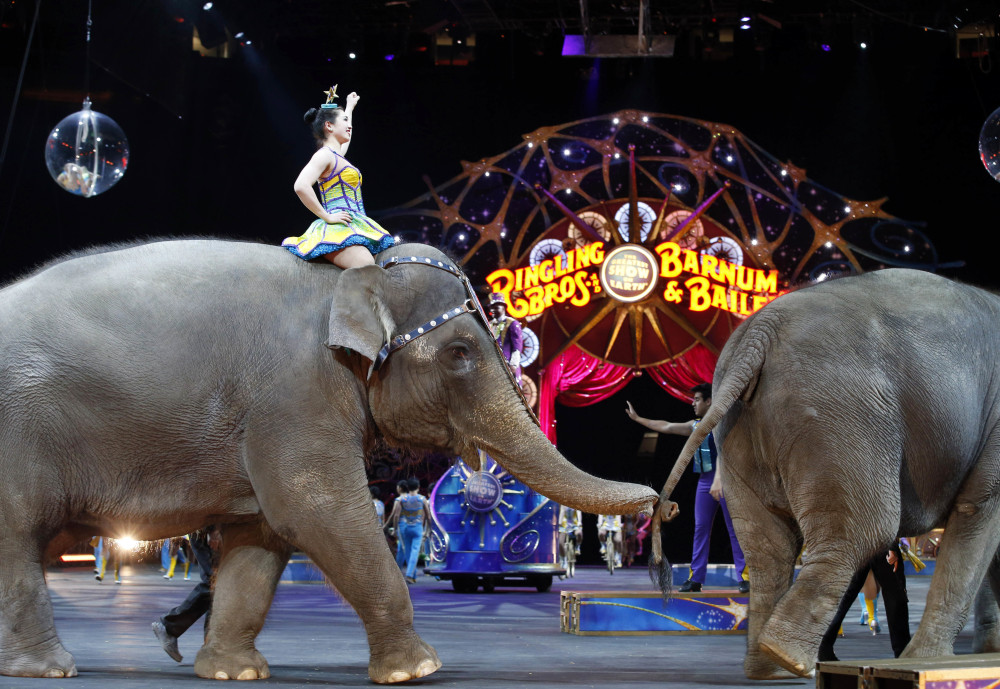PROVIDENCE, R.I. — Elephants performed for the last time at the Ringling Bros. and Barnum & Bailey Circus, as the show closes its own chapter on a controversial practice that has entertained audiences since circuses began in America two centuries ago.
Six Asian elephants delivered their final performances in Providence, and five performed in Wilkes-Barre, Pennsylvania, during several shows Sunday.
Alana Feld, executive vice president of Feld Entertainment, which owns the circus, said the animals will live at its 200-acre Center for Elephant Conservation in Florida. Its herd of 40 Asian elephants, the largest in North America, will continue a breeding program and be used in a pediatric cancer research project.
In the early 1800s, Hackaliah Bailey added the elephant “Old Bet” to his circus. P.T. Barnum added the African elephant he named Jumbo to “The Greatest Show on Earth” in 1882.
The Humane Society says more than a dozen circuses in the United States continue to use elephants. But none tour as widely as Ringling Bros.
It’s also getting more difficult for circuses to tour with elephants. Dozens of cities have banned the use of bullhooks – used to train elephants – and some states are considering such legislation.
Just as in the Disney movie “Dumbo,” elephants in the past have been dressed up as people and trained to do a range of tricks: play baseball, ride bicycles, play musical instruments, wear wedding dresses or dress in mourning clothes, said Ronald B. Tobias, author of the 2013 book “Behemoth: The History of the Elephant in America.”
The change at Ringling signifies a shift in Americans’ understanding of elephants, Tobias said. People no longer see elephants as circus performers, he said, “but sentient animals.”
Ringling will continue to use animals including horses, lions, tigers, dogs and kangaroos in its shows, Feld said.
The Humane Society has called for an end to the breeding program and for Ringling to retire the animals to one of two accredited sanctuaries, one in California and one in Tennessee, both of which have more than 2,000 acres of land.
Feld said they have the most successful breeding program in North America and have determined they can accommodate the elephants in the space they have.
In 2014, Feld Entertainment won more than $25 million in settlements from animal-rights groups, including the Humane Society, over unproven allegations of mistreated elephants.
Copy the Story LinkSend questions/comments to the editors.



Success. Please wait for the page to reload. If the page does not reload within 5 seconds, please refresh the page.
Enter your email and password to access comments.
Hi, to comment on stories you must . This profile is in addition to your subscription and website login.
Already have a commenting profile? .
Invalid username/password.
Please check your email to confirm and complete your registration.
Only subscribers are eligible to post comments. Please subscribe or login first for digital access. Here’s why.
Use the form below to reset your password. When you've submitted your account email, we will send an email with a reset code.